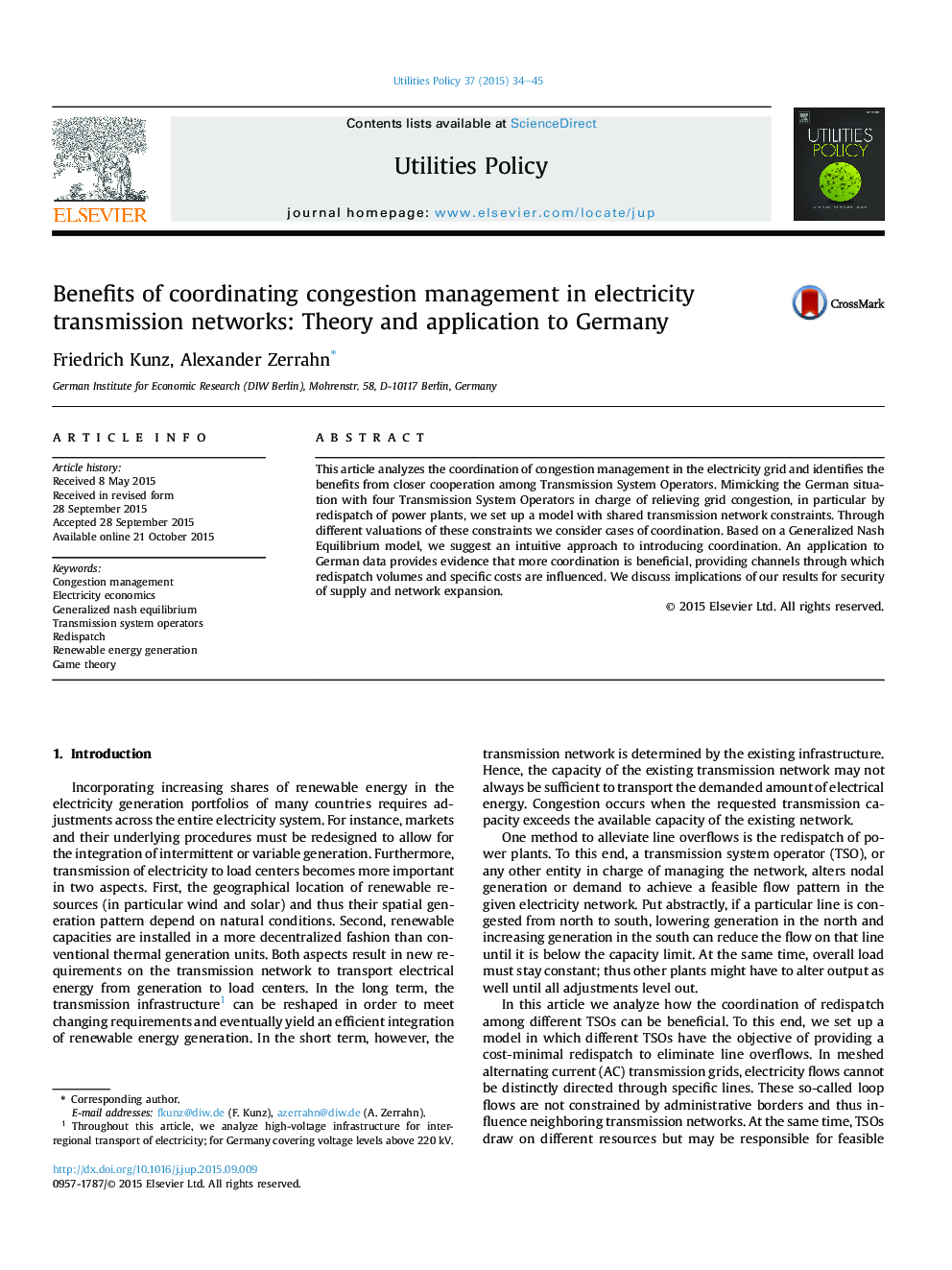| Article ID | Journal | Published Year | Pages | File Type |
|---|---|---|---|---|
| 999933 | Utilities Policy | 2015 | 12 Pages |
•We analyze benefits of coordinating congestion management in electricity networks.•We develop a Generalized Nash Equilibrium model with shared constraints between TSOs.•The valuation of shared constraints reflects regional responsibilities.•An application to the German power system highlights gains from coordination.•Specific costs and redispatch volumes decrease substantially with closer cooperation.
This article analyzes the coordination of congestion management in the electricity grid and identifies the benefits from closer cooperation among Transmission System Operators. Mimicking the German situation with four Transmission System Operators in charge of relieving grid congestion, in particular by redispatch of power plants, we set up a model with shared transmission network constraints. Through different valuations of these constraints we consider cases of coordination. Based on a Generalized Nash Equilibrium model, we suggest an intuitive approach to introducing coordination. An application to German data provides evidence that more coordination is beneficial, providing channels through which redispatch volumes and specific costs are influenced. We discuss implications of our results for security of supply and network expansion.
